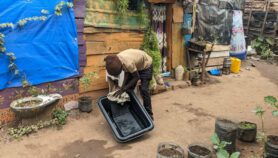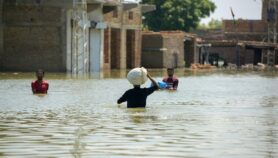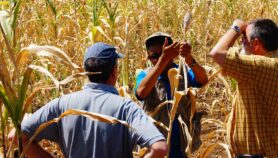By: Ochieng’ Ogodo
Send to a friend
The details you provide on this page will not be used to send unsolicited email, and will not be sold to a 3rd party. See privacy policy.
[JOHANNESBURG] Africa’s freshwater resources are under serious threat from climate change and urgent adaptation measures are needed, says a study.
The UN Environment Programme (UNEP) report ‘Fresh Water Under Threat, Vulnerability Assessment of Freshwater Resources to Environmental Change, Africa’ was released at the 2nd Africa Water Week in South Africa last week (November 9–13).
It calls for urgent adaptation measures to combat scientific and technical deficiencies, poor governance and management structures, pollution of water resources, and industrialisation and urbanisation.
Groups of researchers from across Africa and the western Indian Ocean addressed various vulnerability issues for their respective regions, gathering data from rivers, lakes and groundwater.
"The assessment clearly illustrates that Africa’s water resources are already facing serious risk, with the situation expected to worsen in future," the report says. It cites the Sanaga River basin in Cameroon, where there are competing needs between water for hydropower generation and irrigation. The basin has already been subjected to severe drought.
Henry Ndede, environmental impact assessment expert at UNEP, told SciDev.Net that Africa must address its water deficiency by investing in scientific tools for forecasting and gauging water levels.
"For instance," he said, "scientific innovations are required to predict future weather patterns and to take into account land gradients when constructing rainwater impounding dams for irrigation."
Ndede said the report was a wake-up call for African governments to lead the way in helping urban centres cope up with the expected population increase as rural areas become uninhabitable because of climate change-related events such as flooding and droughts.
Alfred Opere, one of the report’s authors and a senior lecturer at Kenya’s Nairobi University, said that recent drought in Kenya had left many livestock dead, causing food insecurity and declining water levels in lakes.
He added that parts of Africa will suffer prolonged droughts by 2025, leading to a lack of water for domestic consumption and agriculture, while other areas will experience flooding.
"If appropriate adaptation measures are not taken, we will witness severe food insecurity, problems of land degradation in search of elusive livelihoods, underdevelopment as water touches every aspect of development and an upsurge in the disease burden," he said.
"African governments should seriously think of setting up centres of excellence dedicated to climate-change research and the time to act is now as we are yet to see the worst of scenarios resulting from climate change."
Link to full report [PDF 10MB]













